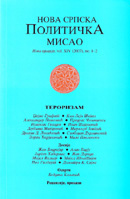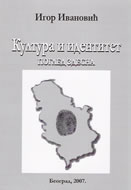| NSPM in English | |||
Lisbon treaty: Painful birth |
 |
 |
 |
| уторак, 06. октобар 2009. | |
|
(Editorial, 5 October 2009)
That said, Ireland's emphatic endorsement at the weekend will now lead to a rush to conclude the business. At least two remaining obstacles lie in the treaty's path (Finland has an issue with the Aland Islands, an autonomous archipelago in the Baltic sea, but this is being treated by the Swedish presidency as an internal matter). The Czech president, Vaclav Klaus, and his Polish counterpart, Lech Kaczynski, have both to sign the treaty, although their parliaments have approved it. Of the two, the more serious threat to ratification is presented by the Eurosceptic, right-wing Mr Klaus, a climate change denier who believes that snowboards, bottled water and backpacks are leftist. A group of senators close to the Czech president have filed a complaint to the country's constitutional court claiming that the treaty lays the foundation for a superstate. Mr Klaus initially hoped the court would take months to deliver its ruling, giving David Cameron time to come to power as the prime minister who promised a referendum if the treaty was not already in force. But on Saturday at least, Mr Klaus was downbeat about the chances of holding another referendum in Europe on the subject. Mr Klaus told the Tories not to depend on a Czech delay, warning British Eurosceptics that they may have left it too late. If Mr Klaus is right to say that his powers are waning then a succession of major decisions will be taken in relatively short order. Tony Blair, the frontrunner candidate for new post of president, may overcome the doubts of the German chancellor, Angela Merkel, partly because he could be seen as a way of neutralising the dangers posed by a future Tory British prime minister. Besides, the job of president is what he makes of it. The more defined post is that of the EU foreign policy chief, a foreign minister in all but name, which would probably go to a Christian Democrat. For Britain, and for Mr Cameron in particular, the message is clear. The EU is getting its act together, and the question once again is whether Britain wants to be part of it. The choice should be obvious. |
Од истог аутора
Остали чланци у рубрици
- Playing With Fire in Ukraine
- Kosovo as a res extra commercium and the alchemy of colonization
- The Balkans XX years after NATO aggression: the case of the Republic of Srpska – past, present and future
- Из архиве - Remarks Before the Foreign Affairs Committee of the European Parliament
- Dysfunction in the Balkans - Can the Post-Yugoslav Settlement Survive?
- Serbia’s latest would-be savior is a modernizer, a strongman - or both
- Why the Ukraine Crisis Is the West’s Fault
- The Ghosts of World War I Circle over Ukraine
- Nato's action plan in Ukraine is right out of Dr Strangelove
- Why Yanukovych Said No to Europe

.jpg)








 The Lisbon treaty has had so many setbacks in the eight long years of its inception that even if it comes into force by the end of the year, it is likely to be the last major treaty the European Union signs. Try as they might to rename the baby, its birth pangs have been so painful that this child will be the EU's last. Its passage has evoked such powerful Eurosceptic currents that by default it has established the opposite of what it set out to achieve – the limits of European integration and expansion. Croatia and possibly Iceland will join, but Turkey and Ukraine seem less, not more, likely to do so.
The Lisbon treaty has had so many setbacks in the eight long years of its inception that even if it comes into force by the end of the year, it is likely to be the last major treaty the European Union signs. Try as they might to rename the baby, its birth pangs have been so painful that this child will be the EU's last. Its passage has evoked such powerful Eurosceptic currents that by default it has established the opposite of what it set out to achieve – the limits of European integration and expansion. Croatia and possibly Iceland will join, but Turkey and Ukraine seem less, not more, likely to do so.











